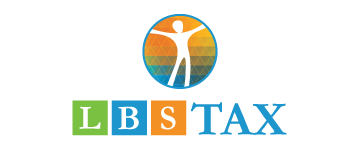Taxes can be a burden! No one wants to pay them, but we all have to deal with it at some point in our lives. One of the most common questions people ask is, “how much should I save for my taxes?” The answer depends on your situation and if you’re self-employed or not, so let’s break down what you need to know about saving for your taxes.
What are the different types of taxes?
The three main types of taxes are federal, state, and local. Federal taxes are applied to your income by the United States government, while state and local taxes usually go towards schools or other public services in the area you live. The latter two types tend to be lower than federal income tax returns, ranging from 0% – 39%.
How much money should I save every month?
There isn’t a set number you need to save each month, but if your goal is to avoid penalties and interest charges, it’s best to make sure you’re saving at least 90% of the total amount due for your taxes. If you don’t save enough, you’ll have to pay a penalty for underpayment.
The best thing to do is go through your records and see how much tax you’ve paid over the past few years by April 15th (the filing deadline) because that will help determine whether or not it makes sense to set aside money every month going forward.
This is an excellent opportunity to look at your financial position and make sure you’re saving enough for your upcoming tax bill.
Use the 30% rule
If you aren’t sure how much to save, the 30% rule is a helpful guideline. Under this method, multiply your expected business income for next year by 0.30 and set aside that amount every month in an account marked explicitly as “tax savings.” Then on April 15th of next year, when it’s time to file your taxes, you’ll know how much total tax to expect and can plan accordingly.
By the end of the financial year, you’ll realize that you’ve set aside just about your expected total tax returns, which means you’re on the right track!
What if I’m self-employed? Do I need to set aside more or less than someone who isn’t?
If you’re not employed by anyone else, you’ll need to set aside more money because your income isn’t guaranteed. A good rule of thumb is 20%, but it can be lower if you have other sources of income or fewer deductions that reduce your taxable income (if this applies).
You also might want to consider hiring an accountant who specializes in self-employment tax filing so they can help you set aside the right amount of money every month to avoid penalties.
When should I start saving to pay taxes?
You should start saving as soon as you can! Taxes are due on April 15th, so if you’re not ready, take a look at your tax documents and see how much tax burden you’ve paid over the past few years and set aside the right amount every month to be ready. The earlier you start saving, the better chance you will have to meet your goal and avoid penalties and interest charges at tax time. If you don’t think it’s possible for whatever reason, then hire an accountant to help you out.

What other saving methods can I use?
Per-payment method
The per-payment method is similar to the 30% rule- for each payment you receive from a client, 30% is saved for taxes. Instead of doing it yourself, you’ll be hiring a tax professional or company that specializes in taxes. This way, they can take care of all the income tax preparation and filing for you, so all you have to do is save your money! This is a great option for people who want to avoid setting up their own savings account but still want an organized way to know how much tax has been paid overtime.
Monthly method
The monthly method is similar to the per-payment because you have a set amount automatically deducted from your checking account each month and saved for taxes, but under this method, it’s up to you how much money should be withheld. You can do this by manually setting aside 30% of every deposit or just saving what you need throughout the year to avoid penalties and interest charges at tax return time. This is a great option for people who want to set aside the right amount of money every month but don’t feel like they need all that paperwork or someone else to do it.
Yearly method
The yearly method is the most straightforward way to save for taxes. Under this option, you’ll have one big payment at tax time instead of a monthly or per-payment deduction from your checking account. This would be helpful if you’re someone who needs more flexibility in how much money is withheld and when it’s taken out of your checking account, or you want to avoid the stress and paperwork that comes with other options.
Which method should I use?
If you’re a new freelancer who isn’t sure how much money they’ll be making next year, the 30% rule is good to start. Under this option, multiply your expected income by 30%, and that’s how much money you should be saving every month to pay your taxes.
Get Your Taxes In-Check With LBS Tax!
If you’re having trouble planning your financial data or preparing taxes, LBS Tax is here to help! We specialize in taxes for self-employed individuals and businesses that don’t have the time to crunch all the numbers. Call our Accountant Chandler office whenever you need our services.

